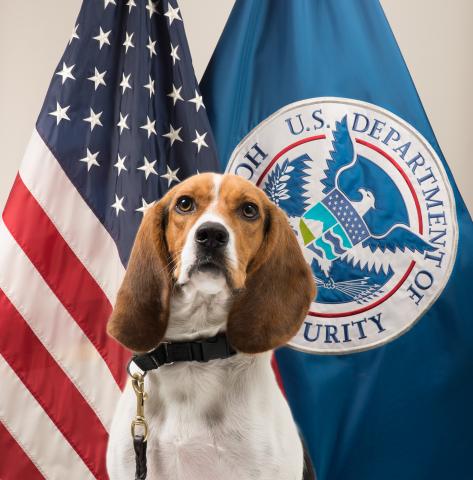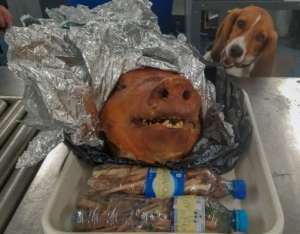

The U.S. Department of Agriculture continues to train dogs at its National Detector Dog Training Center to safeguard American agriculture.

Hardy — a member of the Agriculture Department’s “Beagle Brigade” — sniffed out a roasted pig head in a traveler’s bag in Atlanta earlier this month. USDA officials said this incident underscores the efforts the agency is taking to keep diseases, such as the African Swine Fever (ASF), from entering the U.S..
USDA trains its canines at its National Detector Dog Training Center in Newnan, Georgia. The center is designed to train detector dog teams to safeguard American agriculture.
“The quick work of a beagle and the [Customs and Border Protection] staff prevented a potential animal health issue and further highlighted the need to be vigilant in safeguarding the U.S. against foreign animal diseases,” USDA Secretary Sonny Perdue said in a statement. “Because there’s no treatment or vaccine available for this disease, we must work together to prevent this disease from entering the United States in order to best protect our farmers, our consumers and our natural resources.”

To prevent ASF from entering the country, USDA safeguards include:
“International travelers also need to be aware of this disease, as they could unknowingly carry the virus into the U.S. Anyone who has contact with pigs or swine farms on travel must ensure they carefully clean and disinfect their shoes, wash their clothes and shower prior to having contact with pigs here in the U.S. Report the visit on the CBP form (question 12). Travelers looking to bring back agricultural items or souvenirs should check USDA’s travelers webpage to see if the item(s) are allowed,” the statement said.
Copyright © 2024 Federal News Network. All rights reserved. This website is not intended for users located within the European Economic Area.
Steff Thomas is a digital editor at Federal News Network.

